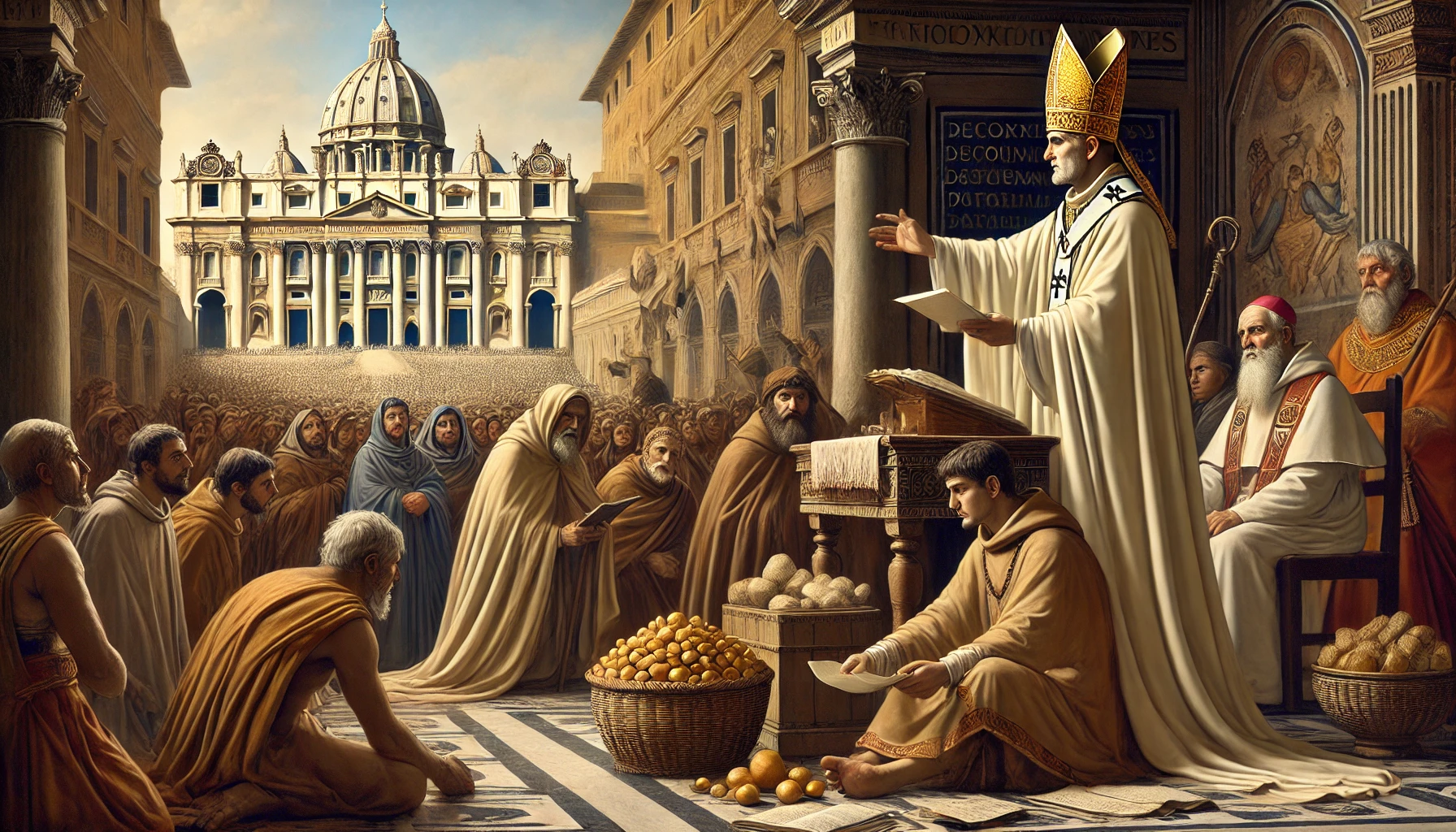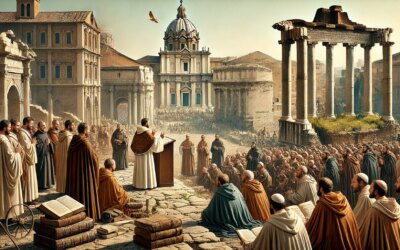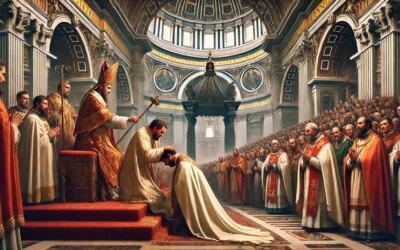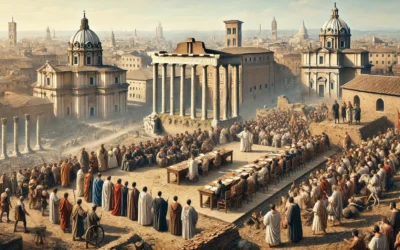Rome in Crisis: The Challenges of the 7th Century
By the late 6th and early 7th centuries, Rome was a city in decline. Once the heart of an empire, it had been reduced to a struggling outpost amid barbarian invasions, famine, and disease. The city’s leadership had shifted from imperial governors to the papacy, with Pope Gregory I—later known as Gregory the Great—emerging as one of the most influential figures in medieval history.
The Pope Who Became a Statesman
Gregory was elected pope in 590 CE, during a time of profound crisis. With Rome suffering from repeated plagues and shortages of food, he took it upon himself to organize grain distribution, care for the sick, and negotiate peace treaties with invading Lombards. His ability to govern not only as a religious leader but also as a statesman helped stabilize Rome when the Byzantine Empire’s control over Italy was weakening.
Gregory’s Missionary Efforts
Beyond Rome, Gregory played a crucial role in spreading Christianity throughout Europe. He famously sent missionaries to England, including Augustine of Canterbury, who successfully converted the Anglo-Saxons. His efforts laid the foundation for the medieval Church’s dominance in Western Europe.
The Gregorian Reforms and Religious Influence
Gregory also reformed church administration, promoting monasticism and standardizing liturgical practices. He introduced the Gregorian Chant, which became a central feature of Christian worship for centuries. His writings, including Pastoral Rule, provided a model for bishops and clergy, reinforcing the Church’s role in guiding both spiritual and civic affairs.
The Enduring Legacy of Gregory the Great
Pope Gregory I passed away in 604 CE, but his impact on Rome and the broader Christian world was profound. He transformed the papacy into a central authority in medieval Europe, proving that even in times of crisis, strong leadership could shape the course of history. His influence can still be seen in the traditions of the Catholic Church today.
Rome’s Transition to a Papal City
Under Gregory, Rome fully transitioned from an imperial city to the seat of a powerful religious institution. His papacy marked the beginning of the medieval era, where the pope’s role extended beyond the Church, influencing politics, diplomacy, and the daily lives of citizens across Christendom.






